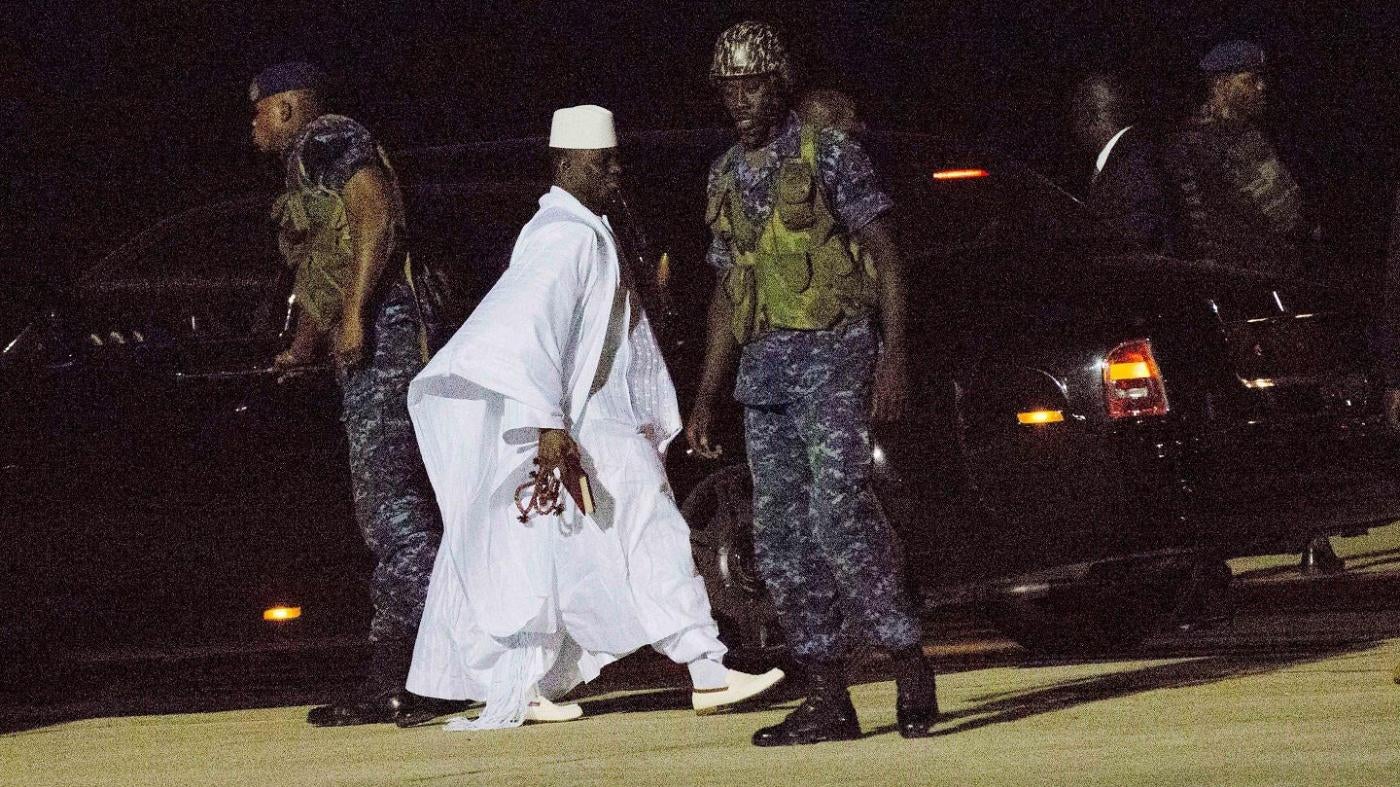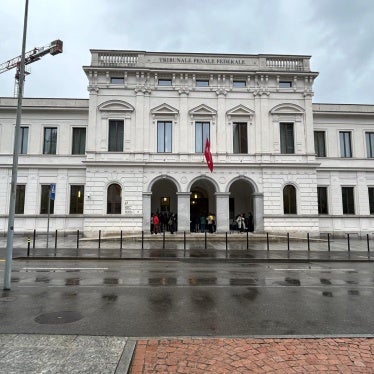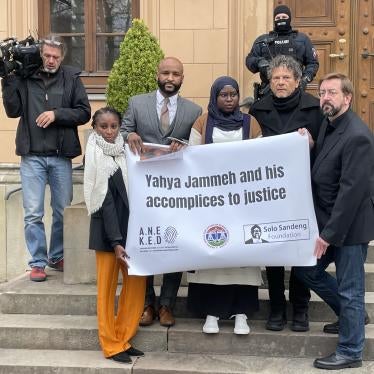Prominent human rights lawyer and investigator Reed Brody has told The Chronicle that the current allegations of abuse against ex-president Yahya Jammeh will make it harder for Equatorial Guinea to refuse to hand him over for trial when the time comes.
Brody, an American with Human Rights Watch, is part of a group which aims to bring the former president to justice for alleged atrocities and human rights abuses. He worked with the victims of former Chadian ruler Hissene Habre and was a key figure in the process of the trial that led to Habre’s conviction and imprisonment.
Brody is currently working with Gambian victims of the former regime. His latest project involved the investigation and documentation of rape and sexual assault allegations against Jammeh. He spoke to The Chronicle about this investigation.
The Chronicle: Why did you undertake this investigation?
Reed Brody: When we started researching Jammeh’s alleged crimes, we had heard rumors about his abuse of women. It was an open secret, but no one had ever nailed the facts down. As you know Sheriff, in the Hissène Habré case, we were late in documenting sexual violence, just as prosecutors were late to raise sexual violence in Rwanda and even failed to raise it in many other situations. I was determined not to let sex crimes be overlooked here. But researching this kind of issue requires persistence, patience, and especially sensitivity and empathy. Fortunately our lead researcher Marion Volkmann-Brandau showed these qualities in gaining the confidence of victims – especially two women we identified in our report as “Anta” and “Bintu” who accused Jammeh of raping or assaulting them. And of course we interviewed Fatou (Toufah) Jallow, who was determined to make her story public. Fatoumatta Sandeng put us in touch with Toufah.
Who else did you interview?
We interviewed a number of Jammeh’s former aides, “insiders” with direct knowledge of his system – two men who worked for the Protocol Department at State House; four of his close protection officers; a woman who worked at State House, a former senior official at the National Intelligence Agency, and several others. Some of them are still in The Gambia and several are abroad. These insiders described Jammeh’s “system,” and showed us that the stories of Toufah, “Anta” and “Bintu” were not isolated cases, but were part of a pattern in which women would be pressured to visit or work for Jammeh and then abused.
What were your principal findings?
We found credible evidence that Jammeh took advantage of his position to rape, sexually abuse and exploit women for sex. Some women were dragooned by Jammeh’s aides after he picked them out at events. Five former officials said that he ordered them and others to get the phone numbers of women he identified. Some women were put on the state payroll at State House, as so-called “protocol girls.” Jammeh gave these women cash and gifts and promised them scholarships or other privileges if they had sex with him.
How many women were involved?
It’s really hard to know. Several witnesses who worked at State House said that Jammeh had young women brought to him almost every night. There were about 10 “protocol girls” at any given time. We were given the names of 16 women, but most refused to speak with us. I would think that what we could document is probably just the tip of the iceberg.
Some people questioned the authenticity of Toufah Jallow’s allegation that she was raped by Jammeh. What did you do to verify her account?
We checked out her story with multiple people with whom Toufah interacted right after the incident. When she fled to Senegal a few days later, she told her story to the United Nations, Amnesty International and Article 19. They all have records of her account. Toufah signed a waiver allowing access to her files with the Canadian immigration and refugee authorities. We also spoke to her family and to those who helped her escape. What Toufah is saying now is what she described back then, days after the event.
The outlines of Toufah’s account also match the experiences of “Anta” and “Bintu,” who she didn’t know. In each case, it was the same driver who picked them up; in each case it was Jammeh’s cousin Jimbee who befriended them, phoned them, had them brought to State House, took them to Jammeh, and stayed with them and the president in his room before leaving them alone.
Your hashtag #IamToufah has gone viral. What do you think of the reaction in Gambia to Toufa’s alleged revelations?
I never expected that. It was so gratifying. It was like a taboo had been lifted and every woman had a story to tell. And many men have come out to support them. The Attorney General Ba Tambedou showed real leadership by praising Toufah and calling on others to come forward. New groups are forming, including an organization that Toufah is founding.
What comes next?
The TRRC will hold hearings on sexual violence later this year, and has reached out to women to give statements in ways that preserve their safety and dignity and protect them from retaliation. Toufah, of course, plans to speak in open session. Last year, the TRRC organized a series of women-only listening circles bringing victims together to share privately their traumatic experiences. So, I hope that our report and Toufah’s declarations were part of a conversation which will continue at the TRRC and in many other ways.
And holding Jammeh to account?
These revelations are going to make it harder for Equatorial Guinea to refuse to hand Jammeh over when the time comes. Thanks to the TRRC and the courage of the victims, we are learning more each day about Jammeh’s alleged crimes: multiple allegations by Jammeh’s henchmen at the TRRC that he personally ordered killings; the phony “HIV treatment” program; evidence that Jammeh’s “Junglers “ were behind the massacre of 56 migrants from Ghana, Senegal, Togo, Cote d’Ivoire and Nigeria; attacks on journalists; and now rape.




